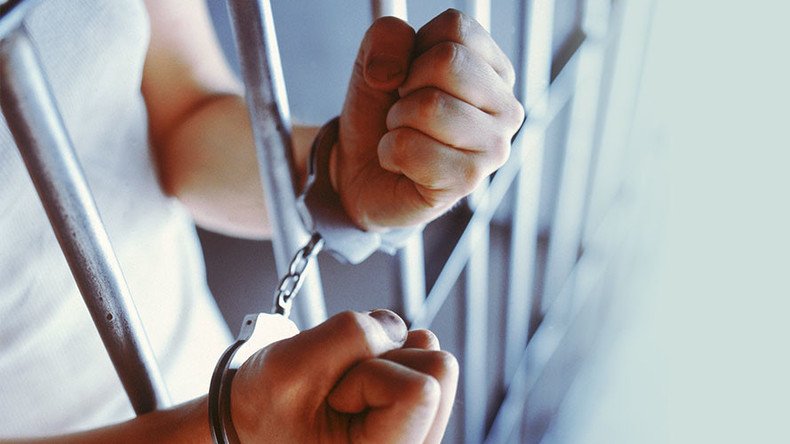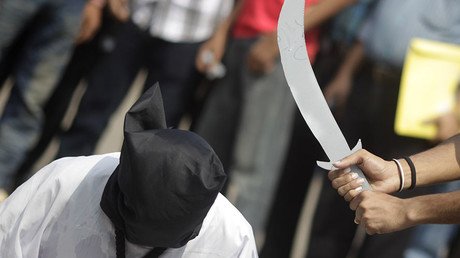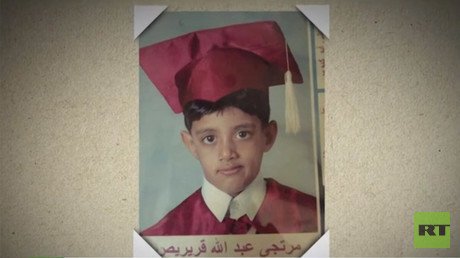Saudi repression of peaceful activists at alarming high level – HRW

A new HRW report documents an alarming rise in Saudi Arabia’s allegedly politically-motivated persecution of dissidents, while detailing the cases of four activists either jailed or sentenced at the beginning of 2017.
The report says that a rise in allegedly politically-motivated arrests that began in 2011 has seen at least 20 dissenters receive severe punishments comparable to man-slaughter sentences in the West – 10 to 15 years imprisonment. The charges they have faced all seem to involve being disloyal to the king, in one form or another – “breaking allegiance with the ruler” and “participating in a protest” are some examples cited by HRW.
Saudi Arabia: Intensified Repression of Writers, Activists https://t.co/Sg0kKPse0X
— Human Rights Watch (@hrw) February 6, 2017
Simply speaking to the international media or an NGO can also lead to persecution, according to the report.
“Saudi Arabia is trying to silence and lock away anyone who doesn’t toe the official line or dares to express an independent view on politics, religion, or human rights,” said HRW’s Middle East director, Sarah Leah Whitson.
“When will the Saudi authorities understand that talking to the media or an international organization should not be a crime?” she asked.
On January 18, prominent writer, Nadhir al-Majed, 39, received a seven-year sentence and seven-year travel ban for taking part in 2011 protests against the Sunni kingdom’s clampdown on Shia Muslim rights. According to HRW, among the several charges he faced were “slandering the ruler and breaking allegiance with him” and “sending a group of electronic messages to a number of media outlets and satellite TV channels and human rights organizations.”
Al-Majed, a teacher, was seized at his place of work in April of 2011, and detained for 15 months. He wasn’t formally charged until December of 2015, and wasn’t convicted for another two years. He is currently being held in a prison just outside Riyadh and has been forbidden all communication with his family since mid-January, according to local activists speaking to HRW.
The wording in the charges leveled against the dissenters is quite similar. On January 10, the authorities arrested activist Abdulaziz al-Shubaily, 31, for “insulting the judiciary” and “incitement against public order,” as well as the more elaborate-sounding “describing the ruling Saudi state – unjustly and wrongly – as a police state,” among other charges. However, later, in March of 2015, the court added “being in touch with outside agencies and sending them reports including many fallacies against the kingdom, which were behind two reports issued by Amnesty International.”
Amnesty has been another vocal critic of Saudi Arabia, particularly for its leadership in the bombardment of Yemen. In December of 2016, the organization struck out against the Saudi regime, tallying up the number of death sentences it had doled out in 2015 and arriving at the figure 158, putting the kingdom at number three, next to Iran and Pakistan. Moreover, the next month, the NGO noted that 47 of those had been carried out in just one day – the most since 1980.
Another activist that HRW looked at in its report was Al-Shubaily, the former-head of the Saudi Civil and Political Rights Association (ACPRA), who received an eight-year prison sentence and an eight-year travel ban, as well as an eight-year ban on the use of social media, upon release. He is currently out on bail, appealing the sentence.
Another activist, Essam Koshak, 45, has been held without charge since January 8 for actively campaigning for human rights on social media, HRW reports.
Another dissenter specifically mentioned in the report is Ahmed al-Musheikhis, 45, the founding member of the Adala Center for Human Rights, who was detained on January 5 and released on February 1.
“Saudi Arabia repeatedly demonstrates its complete intolerance toward citizens who speak out for human rights and reform,” Whitson said.
In addition, a Saudi human rights activist contacted RT in June of last year to report on the plight of Murtaja Algariras – a boy arrested in 2014 when he was 13 for allegedly participating in the 2011 anti-government protests – who has been held for several years without charges.
HRW has documented numerous other detentions since 2011, which, according to the report’s authors, show a pattern of abuse directed towards human rights advocates, particularly those associated with ACPRA, which was banned by the government in 2013, with all of its members charged of crimes.
HR notes that, since the period beginning in 2011, all of the activists have been arrested and imprisoned for engaging in peaceful forms of protest, meaning the government is violating the laws of the Arab Charter on Human Rights – particularly Article 32, which guarantees freedom of expression – to which it is a signatory.
Human rights organizations have repeatedly criticized the UK and US for giving the Saudi regime an easy pass on perpetrating human rights abuses on its own people.














